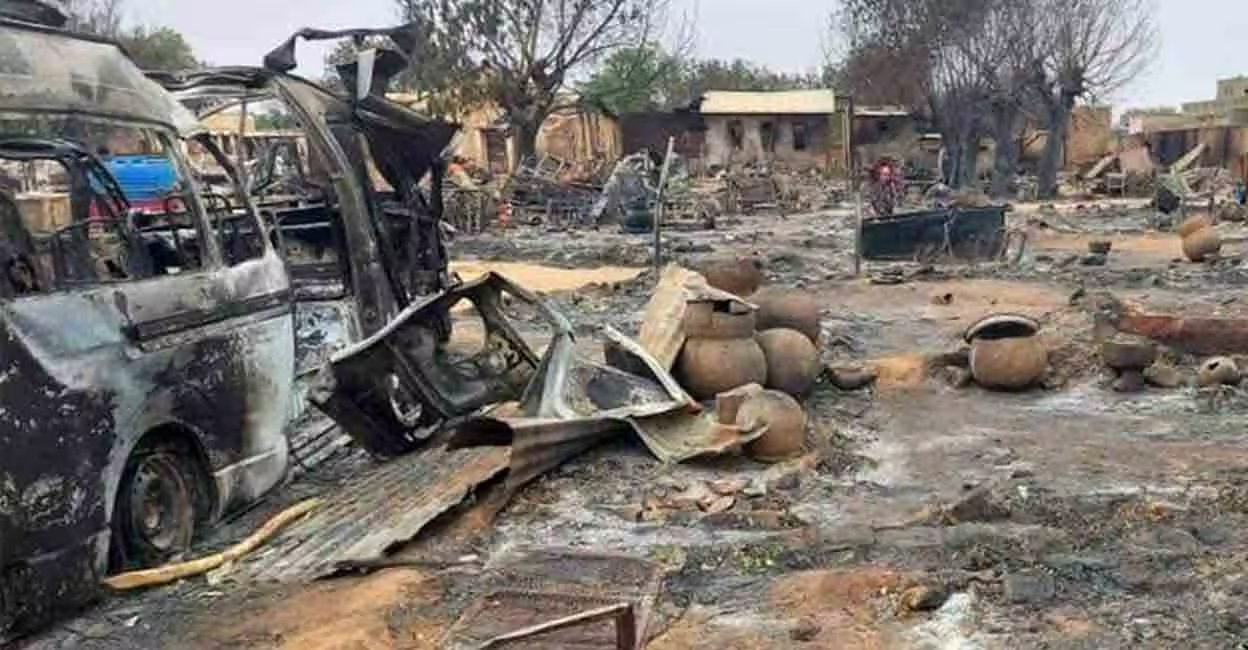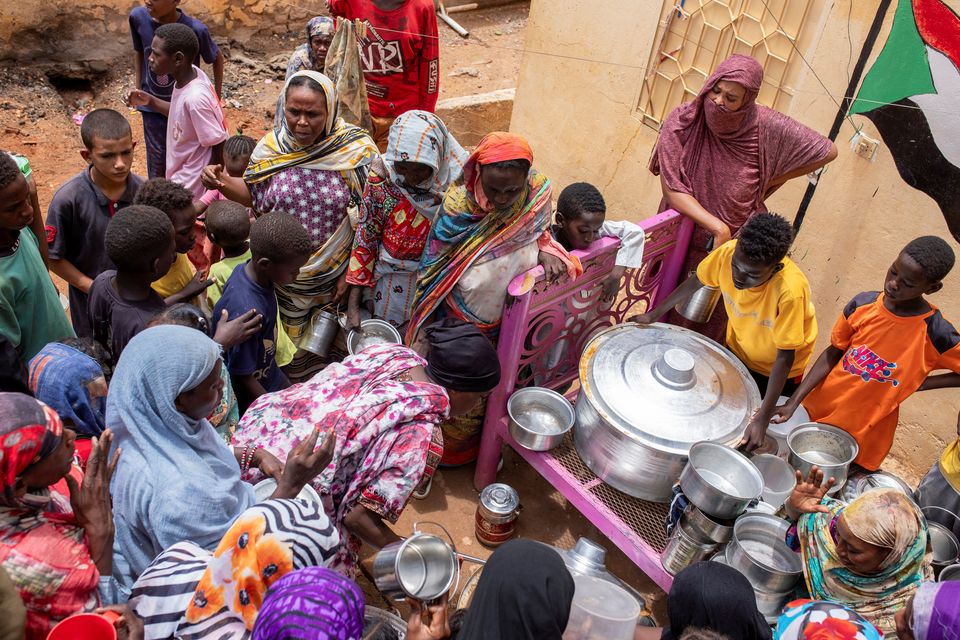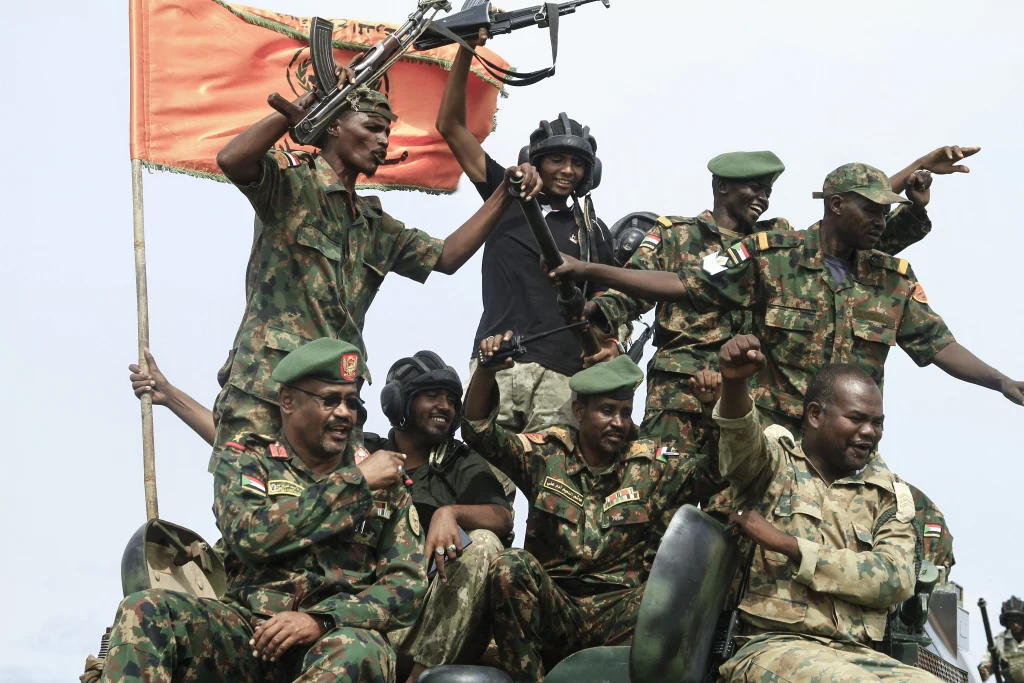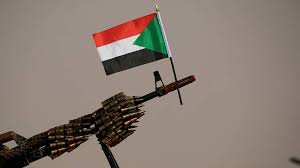Sudan’s paramilitary Rapid Support Forces (RSF) carried out a deadly attack on the village of Al-Sireha in El Gezira State, killing at least 124 people on Friday in one of the most severe episodes in the 18-month conflict. Pro-democracy activists attribute the violence to revenge killings following the recent surrender of Abuagla Keikal, a senior RSF officer who defected to the Sudanese army earlier in the week. In what activists call an escalating campaign of retribution, the RSF is accused of targeting Gezira residents through killings, detentions, and forced displacements. Local sources claim the militia has been terrorizing communities across the state for months, looting homes, and displacing thousands, a pattern that has accelerated since Keikal’s defection.
Amid mounting reports of atrocities, the Wad Madani Resistance Committee, a pro-democracy group, reported that the RSF’s latest attack injured at least 100 civilians. Images and videos purportedly from the village show bodies prepared for burial and scenes of mass graves. Some videos, though not verified, appear to depict RSF soldiers intimidating residents and forcing them to act in demeaning ways. Another video shows an elderly man being pulled by his beard, further underlining the brutality alleged by activists and advocacy groups. Social media circulated these scenes widely, igniting global concern over the RSF’s actions.

The RSF, for its part, issued a statement accusing the army of inciting civilians against them in Gezira and using Keikal’s loyalists to destabilize the region. While both the RSF and Sudanese army have been accused of war crimes, the RSF’s approach in recent months appears to have escalated, with reports of systemic violence in West Darfur and now Gezira. The United Nations has described Sudan’s crisis as one of the world’s worst humanitarian situations, with the ongoing conflict leading to over 11 million people displaced, large portions of the country facing extreme hunger, and widespread infrastructure collapse.
Since the civil war began in April 2023, what began as a power struggle between the Sudanese army and the RSF has plunged Sudan further into chaos. After the two forces initially cooperated following a 2021 military coup, the RSF’s role as a rival power led to hostilities that derailed Sudan’s intended transition to civilian governance. Today, the RSF controls significant territory, including parts of Khartoum, while the army has struggled to reclaim these areas. General Abdel Fattah al-Burhan, head of the Sudanese army, condemned the RSF’s violence in Gezira, but many critics argue the army has failed to protect civilians effectively.

The violence in Gezira has been characterized not only by killings but also by severe abuses and displacement. Sudan’s Combating Violence Against Women Unit has reported cases of RSF soldiers raping women, which they allege is used as a tactic to drive out civilians by humiliating their families. The Sudanese Doctors Union stated that transporting or treating the wounded in Gezira has become nearly impossible, with those attempting to flee facing deadly risks on foot. Despite calls for safe corridors, many injured civilians remain trapped, unable to access essential medical care or flee safely.
International condemnation has been swift. Tom Perriello, the U.S. Special Envoy for Sudan, called the RSF’s actions in Gezira “reprehensible,” adding that both the RSF and the Sudanese army have failed to protect civilians. The United States has accused the RSF of committing war crimes and ethnic cleansing, particularly in West Darfur, and is closely monitoring the latest attacks. Calls for accountability and humanitarian intervention have mounted as both domestic and international critics express frustration over the lack of civilian protections.

Allegations of war crimes extend to the Sudanese army, as its airstrike campaigns, intended to weaken the RSF, have often resulted in high civilian casualties. Despite these efforts, the airstrikes have largely failed to push the RSF back, and the ongoing conflict has intensified Sudan’s humanitarian crisis. The country faces a grim reality, with vast numbers of displaced people, severe shortages of food, and a health crisis exacerbated by the destruction of medical facilities and targeted attacks on civilian infrastructure.
As international bodies continue to raise alarms, the situation remains dire for residents of Gezira and across Sudan. The local resistance committee describes the RSF’s campaign as “genocidal,” asserting that the paramilitary group is systematically targeting villages across eastern, central, and western Gezira in a brutal display of force. In response to the escalating violence, Sudanese civilians and pro-democracy groups are renewing calls for intervention, safe evacuation routes, and accountability for those responsible for the rising toll on Sudan’s people.




